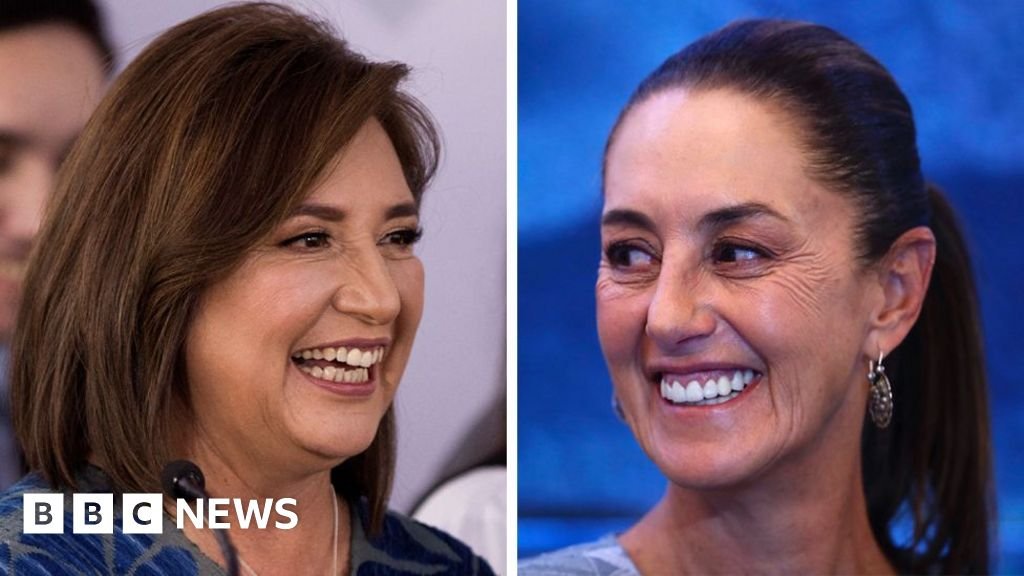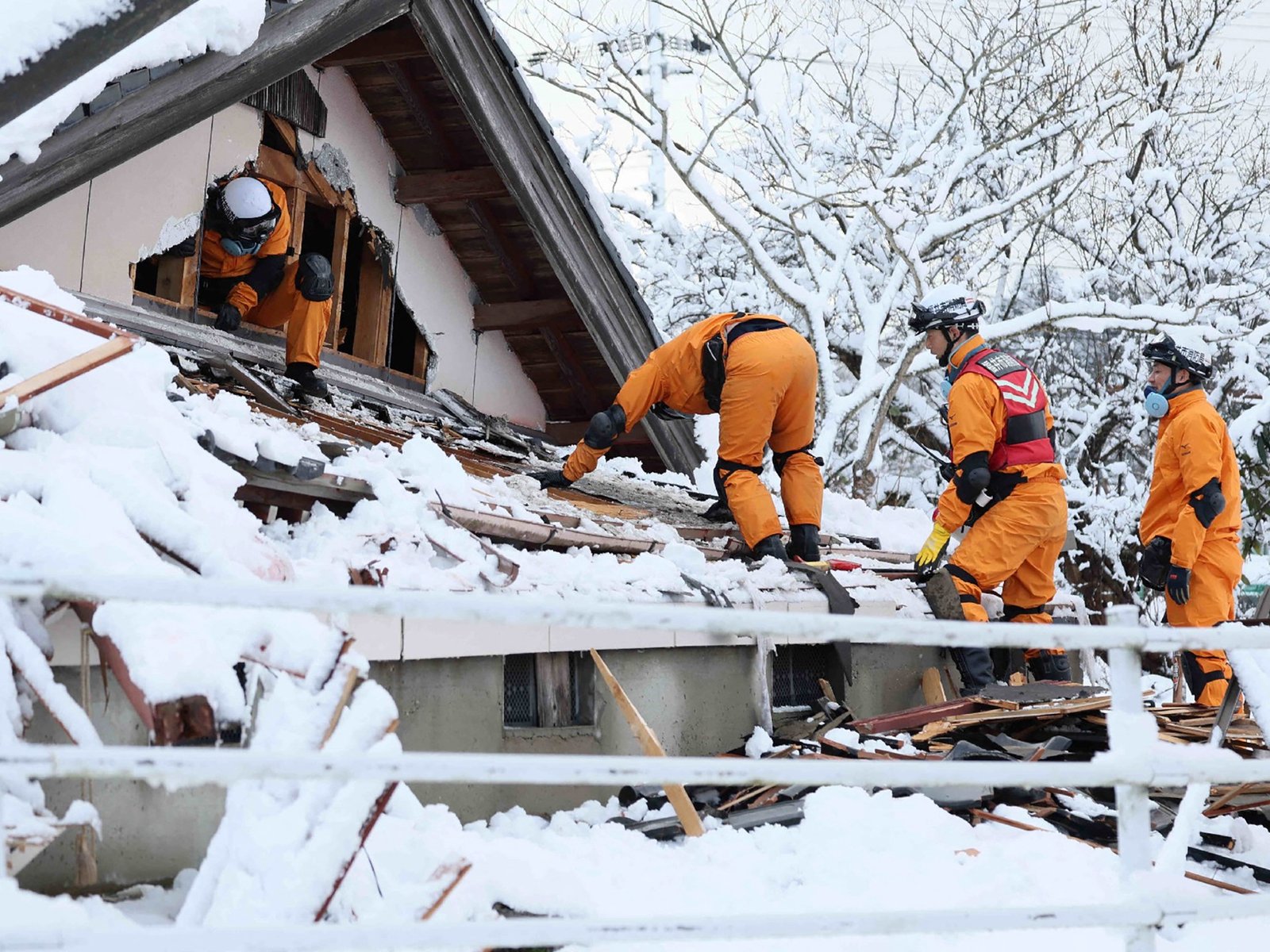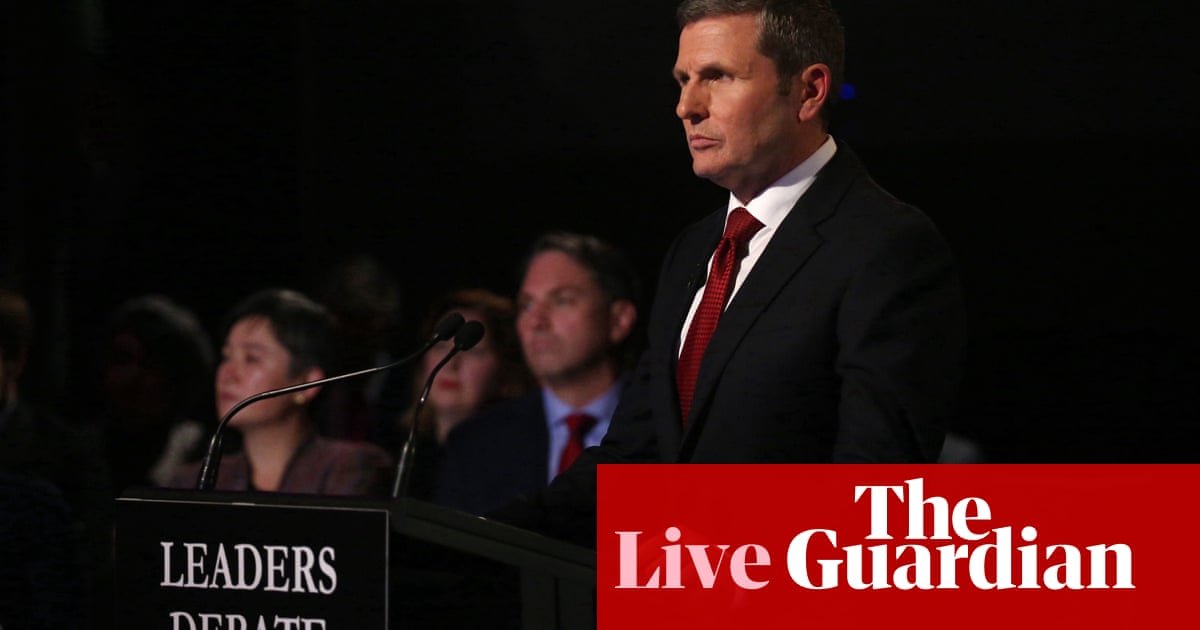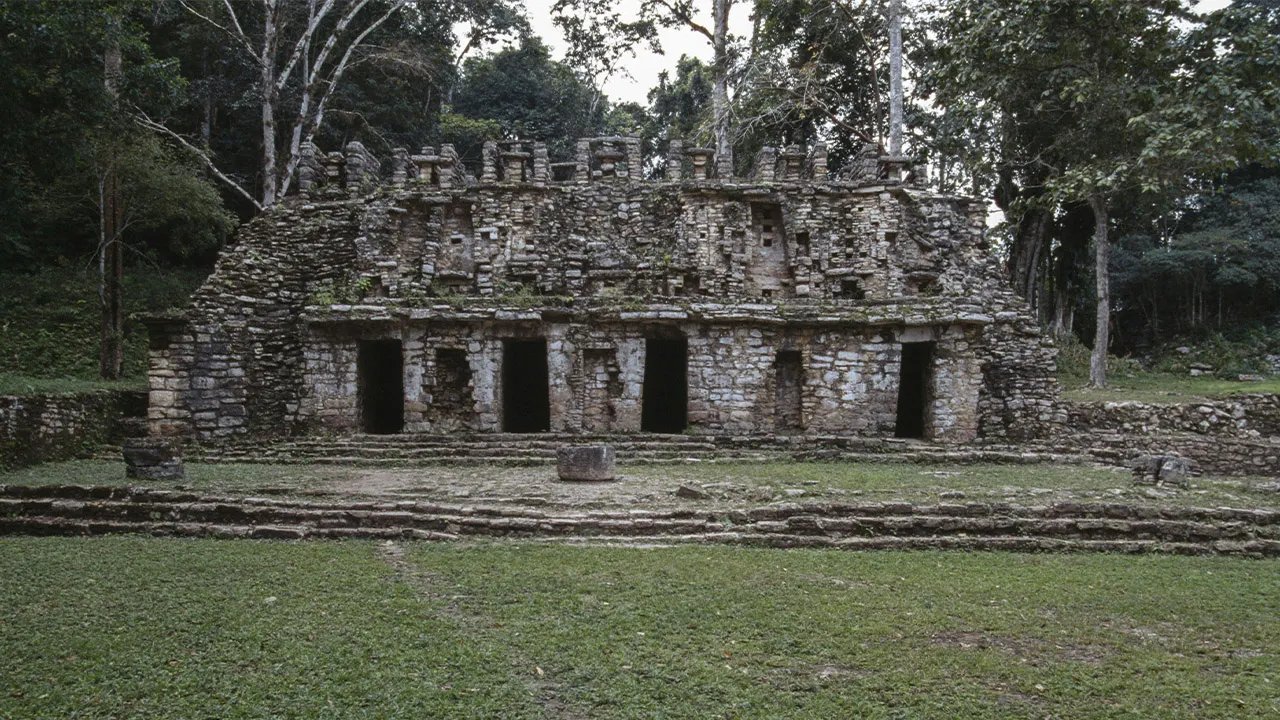 Reuters
ReutersAs Claudia Sheinbaum, the front-runner in Mexico’s presidential election, arrives for a rally in a packed park in the colonial city of Orizaba, the crowd starts to chant “Presidenta!”

Those attending are convinced that is what she is about to become: Mexico’s first ever woman president.
The polls suggest they may well be right.
With her closest rival, Xóchitl Gálvez, also a woman, and the only man in the presidential race a distant third, Mexico is almost certain to set to break centuries of male domination of the country’s highest office.
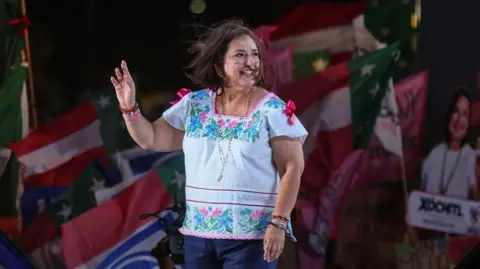 EPA
EPAIn fluent English, Ms Sheinbaum, who belongs to the governing Morena party, says the fact that both leading candidates are women is a sign that Mexican society is finally evolving.
“It’s a symbol for Mexico. I think it’s also a symbol for the world,” she told the BBC.
“Mexico has been called a machista country for many years. But Mexicans are now governed by many women and that’s a change,” says the former mayor of Mexico City, referring to the gender parity in the cabinet and the high number of women serving as state governors.
“I see young girls who are excited that a woman is going to be president. And it changes the culture for women and for men.”
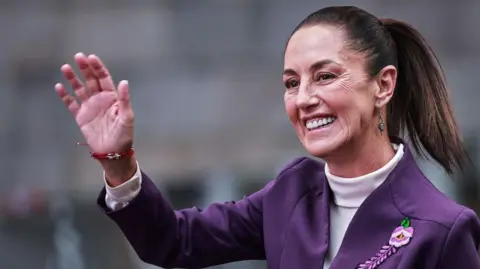 Getty Images
Getty ImagesMexico is a country where around 11 women a day are murdered on average and Ms Sheinbaum was quick to acknowledge that more needed to be done to reduce violence against women.
That is easier said than done.
Veracruz is one of the five worst states for femicides in the country.
Just days before the candidate’s visit to the eastern state, the body of 23-year-old Isamar Galindo was found with her hands tied, tortured, wrapped in a blanket and dumped in a canal.
“Profound cultural changes don’t happen overnight,” says Ms Sheinbaum of the ingrained problems of machismo and gender-based violence in Mexican society.
Throughout the campaign, her message has remained the same. If elected, she says, she will continue the social and political process launched by her mentor, President Andrés Manuel López Obrador.
Their supporters call it the “Fourth Transformation of Mexico”, comparing it with other key moments in Mexican history including independence and the Mexican Revolution.
Mr López Obrador – commonly known by his initials as Amlo – has introduced a series of social development measures to alleviate poverty including student grants and a universal state pension.
The programmes are so popular that opposition candidates have been at pains to promise that they will not scrap them.
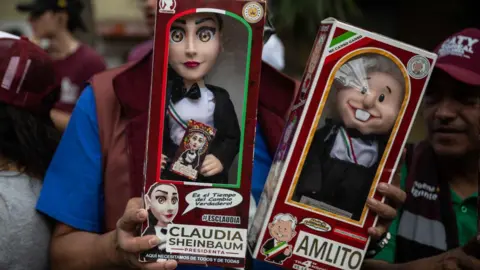 Getty Images
Getty ImagesIn rallies and speeches, Ms Sheinbaum has been careful to praise Amlo and his policies.
In return, his support could bring her huge dividends at the polls – perhaps the presidency itself.
Opponents, particularly her main rival, Xóchitl Gálvez, say President López Obrador is a populist and paint Ms Sheinbaum as merely his puppet, unable to break free from his outsized personality. The former environmental scientist refutes the characterisation:
“I feel sure about myself. I don’t care about these things they say.”
“Of course I’m from the same movement as López Obrador. We fought together for more than 20 years to have the government we have, for the opportunities and rights we’ve won for Mexicans.”
“I’m going to live a different time in history, but I’m going to govern with the same principles and that’s a good thing for Mexican people.”
The BBC requested an interview with Ms Gálvez but she declined.
During the campaign Ms Gálvez, who is running for a conservative opposition coalition, accused the government of cronyism and widespread abuses of power.
She also criticised social spending during President López Obrador’s six years in power as mismanaged and unevenly distributed.
“In the face of the government’s failed social policies, Mexicans’ monthly budgets are stretched too thin. There are nine million people in extreme poverty,” she said in the last televised debate, promising to lower the pensionable age to 60 from 65.
Away from the noise of the campaign, high in the Veracruz mountains, the conditions are ideal for growing some of the finest coffee in the world.
The coffee bean is at the heart of tight-knit rural communities like Ixhuatlán del Café, home to a women’s coffee cooperative called FemCafe.
In most Mexican agricultural co-ops, women are not allowed to vote or hold decision-making roles. But at FemCafe the entire enterprise, from bean to cup, is in the hands of women.
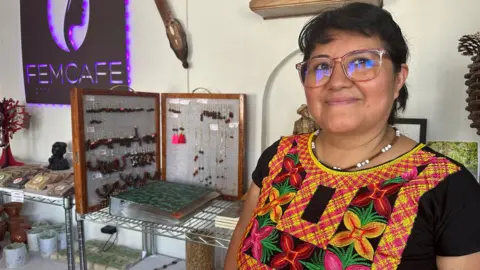
“It’s about recognising that structural inequality – that women have much less access to land than men,” says the cooperative’s founder, Gisela Illescas.
“Although women have always been in coffee production, we’ve been made invisible, denied the power to influence the overall direction or the day-to-day running of production.”
As well as producing their own brand, FemCafe members also run a small coffee shop in town. Gisela Illescas offered some advice for the next president:
“It’s not just about being a woman but about being gender-conscious, which is a very different thing. For example, the agricultural ministry has never been led by a woman. And a women’s perspective in that role would make a huge difference to the rural sector,” she says.
In the Claudia Sheinbaum rally in Orizaba, the crowd’s other main chant is “la primera!”, meaning “the first.”
In fact, other nations in Latin America have had female presidents in the past – including Brazil, Chile and Argentina – but a woman at the helm in Mexico is hugely significant, and long overdue.
The more complex task, however, lies in undoing decades of sexism, inequality and gender-based violence in a deeply patriarchal society.

